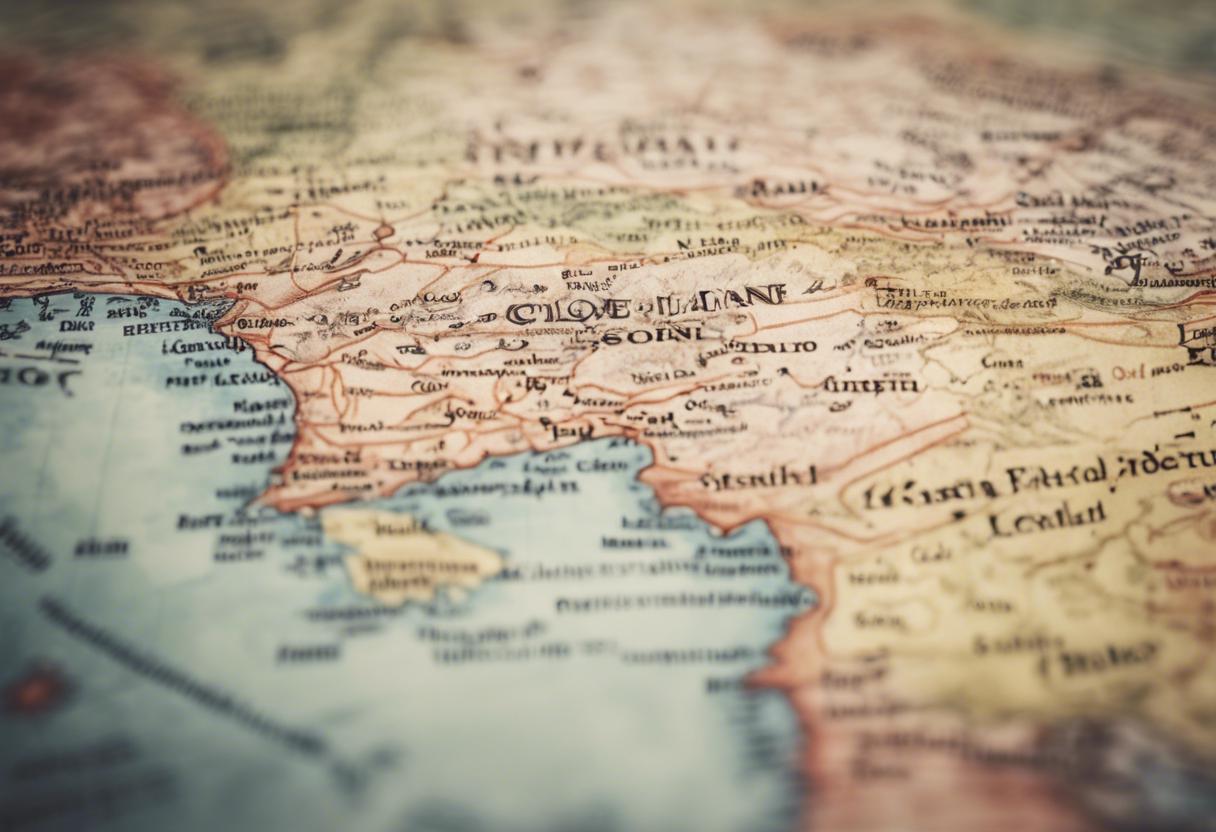On 12th October every year, Spain commemorates the landing of Christopher Columbus in the Americas back in 1492, an event referred to as Hispanic Day. This year, however, the national holiday falls in a tense period with Madrid’s relations with various ex-colonies going through turmoil.
While Spain has deep-rooted economic and cultural associations with countries like Venezuela, Mexico, and Argentina, the respective leaders of each country have recently levelled accusations towards Madrid, initiating fresh talks on the topic of colonisation. Charges range from insolence and arrogance, to corruption with each.
Hostility started to escalate in May when the socialist Spanish government and Argentina’s fervently right-wing libertarian president, Javier Milei, became engaged in a vociferous disagreement. The comment made by transport minister Óscar Puente implying that Milei was under the influence stirred considerable fury. Milei rebuked Spanish policies would lead to the “destitution and demise” of the middle class and stated that their immigration rules “potentially endanger Spanish women”.
Milei further criticised Spain’s Prime Minister, Pedro Sánchez, accusing his wife, Begoña Gómez, of corruption, in light of a controversial legal inquiry into her business activities, which resulted in Spain calling back its ambassador from Buenos Aires.
On another front, Spain was influenced by political disturbances in Venezuela. The Spanish Congress passed a nonbinding motion in September supporting opposition politician Edmundo González as the president-elect of Venezuela, opposing the incumbent president Nicolás Maduro, whose election win was broadly disputed. While the Sánchez government held back from legitimizing Maduro as the winner, concerns over Spain’s significant business ties with Venezuela have also played a part. When defence minister Margarita Robles labelled Maduro’s regime a “dictatorship”, backlash was severe, with Venezuela’s foreign minister, Yván Gil, terming the statement as “impudent, interfering and discourteous”, and calling in Spain’s ambassador for a reproof.
A particularly complicated dispute for Spain, however, has been with Mexico. It extends past individual disputes and present day politics to encompass all former Spanish colonies.
Claudia Scheinbaum, the newly elected president of Mexico, broke tradition by not inviting King Felipe of Spain to her swearing-in ceremony on the 1st of October. Her reasoning was that the Spanish monarchy and its government have not replied to a request for an apology made in 2019 by her predecessor, Andrés Manuel López Obrador. This apology was to be for the human rights violations committed by Spain during the invasion and colonisation of Mexico 500 years ago.
Referring back to this issue this week, Scheinbaum classified the conquest as a “violent act”. She wondered aloud, “What does it mean to say that contemporary Spaniards are not the same as the perpetrators of the conquest? This is about reckoning with the past and recognising that certain actions were wrong.”
There are individuals within Spain who concur with Scheinbaum, feeling that their nation is not following in the footsteps of other countries in Europe in expressing remorse for their colonial past.
Historian Pablo Batalla Cueto stated that while Spain’s colonial practices were on par with other countries in terms of cruelty and eluded to examples such as burning indigenous people alive in America, deploying toxic gas on Moroccan civilians, and the heinous counter-insurgency in Cuba during the 19th century. In contrast, he pointed out that dignitaries of the Netherlands, Belgium, France, and even the Pope have apologized for their nation’s past brutalities.
Cueto highlighted that the Spanish King didn’t even respond to a letter from the Mexican president suggesting a formal apology.
In response to the lack of royal representation at the inauguration, Spanish Prime Minister Sánchez refrained from sending an official representative yet avoided escalating the situation, possibly due to their shared leftist ideologies and economic ties between both nations. However, it is apparent that the Spanish government is not prepared to offer such an apology at this moment.
In 2015, Spain made a move to rectify the historical wrongs previously committed by offering citizenship to the descendants of Sephardic Jews, who were driven out of the nation in the 15th century, a move initiated by the conservative administration. Today, rampant Spanish nationalism, largely stimulated by the surge of Catalan separatist movements, has caused the political right-wing to take a vigorous position pertaining to the New World, demonstrating an inclination towards glorifiying the empire’s history, rather than displaying remorse for past actions.
The right-leaning populist head of the Madrid area, Isabel Díaz Ayuso, is quoted as saying that Spain was responsible for bringing “civilisation and freedom to the American continent”. Meanwhile, Santiago Abascal, spearheading Vox – Spain’s third largest parliamentary group known for its far-right views, has stated that Spain shall never express regret for its “historic civilising achievement”.
As the country anticipates Hispanic Day this year, the conservative Catholic Association of Propagandists put up banners all across Madrid featuring an image of a Spanish conquistador wielding a sword, along with the words: “1492: Neither genocides nor slave-traders; they were heroes and saints.”
Historically, Spain has always dragged a significant amount of historical controversies into the commemoration of October 12th. This year, however, the weight of these historical issues seems profoundly heavier.

